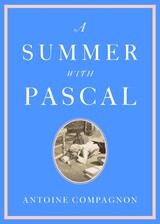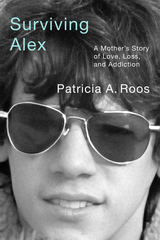
The Global Face of Public Faith addresses the hotly debated question of the role religion should play in politics in both the American and international contexts. It engages the fears that public religion threatens American democracy and could lead to a global clash of civilizations and new wars of religion. It analyzes how Christianity can attain common ground with other religious communities, thus becoming a force for peace and human rights. The separation of church from state need not mean the privatization of religion. Religious engagement in public life can strengthen civic life by encouraging active citizen participation that promotes both justice and peace. The question of religion and politics should thus become an argument about how faith becomes public, not whether it does. Religious communities, Christianity in particular, should be vigorous advocates of human rights, democratic governance, and economic development worldwide. In so doing, they will also become peacemakers.
David Hollenbach is a calm voice of reason in a chaotic world, with an eye that sees beyond national horizons to where human needs and human rights converge. He is convinced that religious traditions can find common ground—through the use of rights and rights language. The Global Face of Public Faith reinforces his commitment to confronting such issues as poverty and economic development, globalism, and interreligious dialogue. He focuses here on faith and the Catholic tradition in politics; the role of the church in American public life; and the wider issues of global challenges and ethics—in a search for a common set of moral standards and a international ethic through a commitment to universal human rights. While not denying the difficulties of forging such a consensus, he nonetheless sees the possibility for justice, and reasons for hope. And hope is something the world can always use.
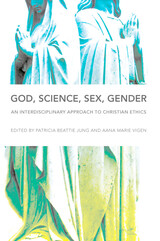
God, Sex, Science, Gender: An Interdisciplinary Approach to Christian Ethics is a timely, wide-ranging attempt to rescue dialogues on human sexuality, sexual diversity, and gender from insular exchanges based primarily on biblical scholarship and denominational ideology. Too often, dialogues on sexuality and gender devolve into the repetition of party lines and defensive postures, without considering the interdisciplinary body of scholarly research on this complex subject. This volume expands beyond the usual parameters, opening the discussion to scholars in the humanities, social sciences, and natural sciences to foster the development of Christian sexual ethics for contemporary times.
Essays by prominent and emerging scholars in the fields of anthropology, sociology, psychology, philosophy, literary studies, theology, and ethics reveal how faith and reason can illuminate our understanding of human sexual and gender diversity. Focusing on the intersection of theology and science and incorporating feminist theory, God, Science, Sex, Gender is a much-needed call for Christian ethicists to map the origins and full range of human sexual experience and gender identity. Essays delve into why human sexuality and gender can be so controversial in Christian contexts, investigate the complexity of sexuality in humans and other species, and reveal the implications of diversity for Christian moral theology.
Contributors are Joel Brown, James Calcagno, Francis J. Catania, Pamela L. Caughie, Robin Colburn, Robert Di Vito, Terry Grande, Frank Fennell, Anne E. Figert, Patricia Beattie Jung, Fred Kniss, John McCarthy, Jon Nilson, Stephen J. Pope, Susan A. Ross, Joan Roughgarden, and Aana Marie Vigen.
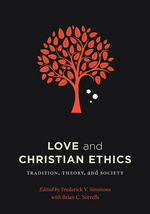
At the heart of Christian ethics is the biblical commandment to love God and to love one's neighbor as oneself. But what is the meaning of love? Scholars have wrestled with this question since the recording of the Christian gospels, and in recent decades teachers and students of Christian ethics have engaged in vigorous debates about appropriate interpretations and implications of this critical norm.
In Love and Christian Ethics, nearly two dozen leading experts analyze and assess the meaning of love from a wide range of perspectives. Chapters are organized into three areas: influential sources and exponents of Western Christian thought about the ethical significance of love, perennial theoretical questions attending that consideration, and the implications of Christian love for important social realities. Contributors bring a richness of thought and experience to deliver unprecedentedly broad and rigorous analysis of this central tenet of Christian ethics and faith. William Werpehowski provides an afterword on future trajectories for this research. Love and Christian Ethics is sure to become a benchmark resource in the field.

Although the two great commandments to love God and to love our neighbors as ourselves are central to Christianity, few theologians or spiritual writers have undertaken an extensive account of the meaning and forms of these loves. Most accounts, in fact, make love of God and love of self either impossible or immoral. Integrating these two commandments, Edward Vacek, SJ, develops an original account of love as the theological foundation for Christian ethics.
Vacek criticizes common understandings of agape, eros, and philia, examining the arguments of Aquinas, Nygren, Outka, Rahner, Scheler, and other theologians and philosophers. He defines love as an emotional, affirmative participation in the beloved's real and ideal goodness, and he extends this definition to the love between God and self. Vacek proposes that the heart of Christian moral life is loving cooperation with God in a mutually perfecting friendship.
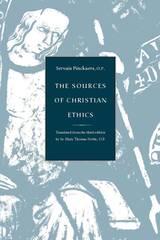

The first book to argue for the concept of tragic dilemmas in Christian ethics
Moral dilemmas arise when individuals are unable to fulfill all of their ethical obligations. Tragic dilemmas are moral dilemmas that involve great tragedy. The existence of moral and tragic dilemmas is debated in philosophy and often dismissed in theology based on the notion that there are effective strategies that completely solve hard ethical situations. Yet cases from real-life events in war and bioethics offer compelling evidence for the existence of tragic dilemmas.
In Tragic Dilemmas in Christian Ethics, Jackson-Meyer expertly explores the thought of Augustine and Aquinas to show the limits of their treatment of hard cases, as well as where their thought can be built on and expanded in relation to tragic dilemmas. She recognizes and develops a new theological understanding of tragic dilemmas rooted in moral philosophy, contemporary case studies, and psychological literature on moral injury. Jackson-Meyer argues that in tragic dilemmas moral agents choose between conflicting nonnegotiable moral obligations rooted in Christian commitments to protect human life and the vulnerable. Personal culpability is mitigated due to constrained situations and society is also culpable when tragic dilemmas are a result of structural sin. In response, Jackson-Meyer implores Christian communities to offer individual and communal healing after tragic dilemmas and to acknowledge their own participation in injustice.
Tragic Dilemmas in Christian Ethics offers practical strategies that Christian communities can use to provide healing to those who have acted in tragic dilemmas and to transform the unjust structures that often cause these tragedies.

In a deeply unequal world, our economic status shapes our pursuit of virtue whether we have enough resources to live comfortably or struggle to survive
Our understanding of inequality as a moral problem is incomplete. It is not enough to say that inequality is caused by moral failing. We must also see that influence runs in both directions. Inequality harms people’s moral development.
In Wealth, Virtue, and Moral Luck, Kate Ward addresses the issue of inequality from the perspective of Christian virtue ethics, arguing that moral luck—our individual life circumstances—affects our ability to pursue virtue. Economic status functions as moral luck and impedes the ability of both the wealthy and the poor to pursue virtues such as prudence, justice, and temperance, and extreme inequality exacerbates the impact of wealth and poverty on virtue.
With these realities in mind, Ward shows how Christians and Christian communities should respond to the challenges inequality poses to virtue. Through working to change the structures that perpetuate extreme inequality—and through spiritual practices, including contentment, conversion, encountering others, and reminding ourselves of our ultimate dependence on God—Ward believes that we can create a world where all people can pursue and achieve virtue.
READERS
Browse our collection.
PUBLISHERS
See BiblioVault's publisher services.
STUDENT SERVICES
Files for college accessibility offices.
UChicago Accessibility Resources
home | accessibility | search | about | contact us
BiblioVault ® 2001 - 2024
The University of Chicago Press


